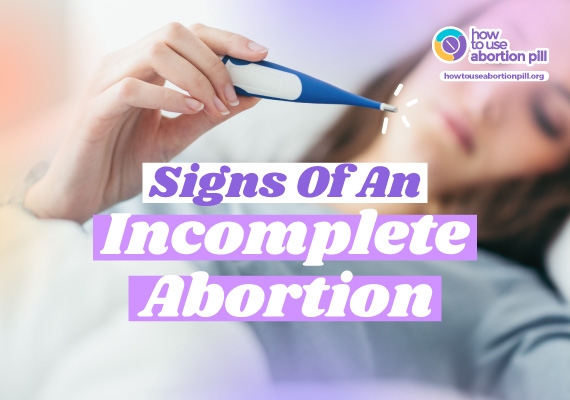Abortion with pills is safe and the chance of a complication is less than 1%. It is also an extremely successful method: abortion with pills will work successfully more than 9 out of 10 times. However, when you decide to have a medical abortion, it’s important to know about potential risks, such as having an incomplete abortion. The term might sound confusing because one will think it means the abortion was not successful seeing as it is incomplete. However an incomplete abortion is an abortion where the termination of the pregnancy is successful but there is still some material left in the womb. In this case, the foetal development has ended but your body still has residue and products from the pregnancy termination. Incomplete abortions are rare, but could cause an infection and should be treated immediately.
Incomplete abortion may be managed expectantly, medically (misoprostol) or surgically (vacuum aspiration).
Is Incomplete Abortion Common?
An incomplete abortion is not that common, only between 2-5% of women that have a medical abortion experience an incomplete abortion. Unfortunately, there is little global data available on this topic, due to restrictive legislation and under-reporting of abortion.
Incomplete abortions occur more frequently in women with advanced pregnancies, women who undergo an unsafe abortion and women with lower socio-economic status. Women who live in third world countries or in areas with poor healthcare access are also at a higher risk of an incomplete abortion after a medical or surgical abortion.
The earlier the pregnancy is terminated, the easier it is for the womb to empty itself completely. Incomplete abortions are more likely when pregnancy termination is at a later date.
Chances of having an incomplete abortion after a medical termination are approximately;
1.6% up to day 77 of pregnancy
2.6% between day 78 to day 83
3.4% between day 83 to day 91.
Signs of An Incomplete Abortion.
Incomplete abortions can cause painful symptoms that need immediate medical attention. You need to seek medical care if you are experiencing any of these signs:
What to do Next.
The next thing to do if you are experiencing all or some of the symptoms mentioned above is to seek immediate medical attention. Not getting medical help can cause a severe infection that can result in sepsis from the products in your body and cause uterine shock.
Post-abortion care is legal in most countries where abortion itself is illegal. If abortion is illegal in your country, you can tell the medical provider you are experiencing a miscarriage and you should receive the appropriate care you need.
Visit howtouseabortionpill to find out about post-abortion care in your country and where to get help.

